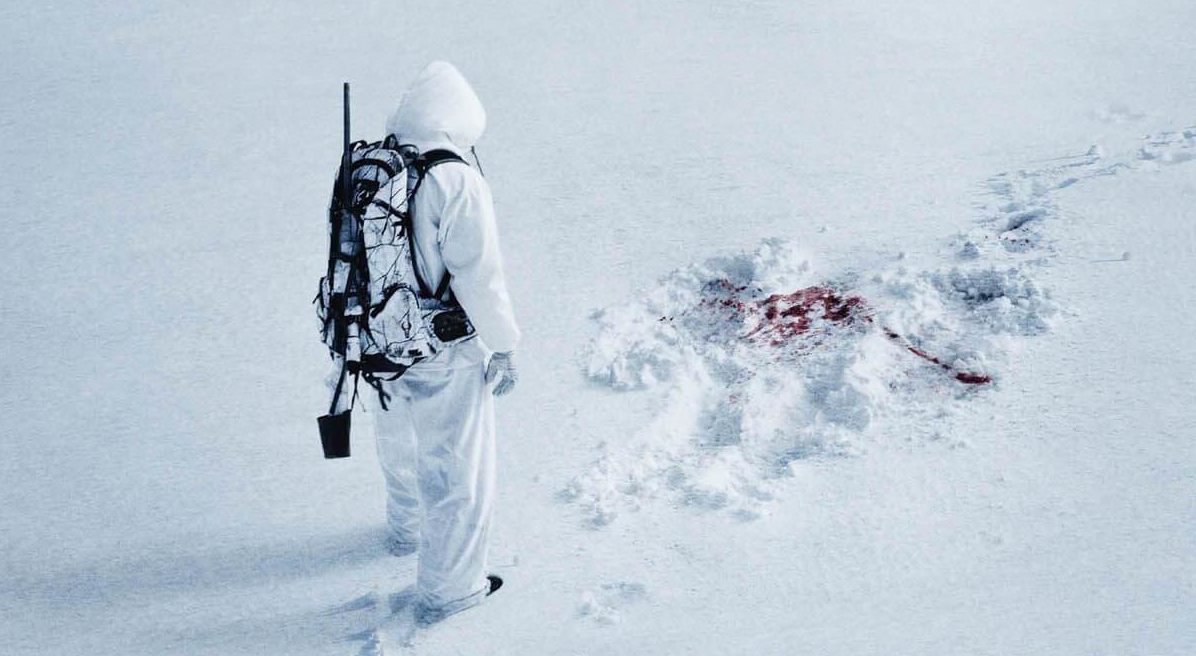Last night I watched Wind River, director Taylor Sheridan’s intense film about the disappearance and murder of a Native American woman, Natalie Hanson. The ambience is extraordinary, the motives for violence primal. The movie, whose protagonists are a hunter deeply embedded in the Native American community (Jeremy Renner) and a well-meaning but unprepared FBI agent (Elizabeth Olsen), highlights some deeply haunting themes: the often grim but authentic struggle to survive physically and emotionally on the far side of America’s frontier, and the accompanying despair and sense of societal and institutional abandonment (which leads to criminal activity by the younger generation; at one point in the film going to jail is referred to as a “rite of passage”).
There are matters of unresolved grief, the idea of having lost something precious and never being able to regain it. Jeremy Renner’s character, Cory Lambert, lost his daughter Emily but could never find out the cause of her death due to her body having been discovered by coyotes. Lambert says to Natalie’s despairing father: “If you shy from the pain of it, then you rob yourself of every memory of her, my friend. Every one. From her first step to her last smile. You’ll kill ’em all. Take the pain, Take the pain, Martin. It’s the only way to keep her with you.”
Just as one must let go of any hope of “resolution” (in the sense of not knowing anymore pain, since it’s simply an unrealistic idea), one must also let go of simple answers to controlling the darker forces of the human heart, even as one builds one’s character, fortitude, and wisdom in the face of mortal threats, as exemplified by Lambert’s relatable yet eminently competent personality. The characters know all too well how the grip of well-intentioned artifices like civilization and ethics loosen at the snow-smothered frontier. Violence can happen any minute. Guns are precious. Rig staff conspire to murder FBI agents investigating the trailer where two crime scenes take place. Of course, this goes the other way as well, with Lambert leaving the perpetuator in the same situation he found Natalie’s body, so that he can die in the same abandoned, merciless way, crawling in vain to an outpost of civilization six miles away: dying “with a whimper,” as Lambert assures Natalie’s father.

The only law available at one’s disposal is that of how strong, resilient, and brutal against threats one is. Vengeance isn’t breaking the law, but its fulfilment. Lambert is the avatar of this paradoxical nature, alternating between tender advice and confessions and expert, unhesitant, and lethal marksmanship.
I’m sure others who have enjoyed this movie came to similar conclusions, and after watching it I thought about how people in harsh environments have to make difficult decisions, to hold things together, and to balance the emotional and moral forces within themselves: some of which are complementary, others conflicting. The instinctive sense of what is “right,” manifesting in the need to inflict some kind of pain (which is exactly what Lambert does to the perpetuator) can prevail over even what seems “right” in a legal or ethical sense. Olsen’s character, FBI agent Jane Banner, concedes as much when she encourages Lambert to go after the perpetuator of the crime, knowing full well he has no intention of bringing him back for a trial. Such an assurance comes from a character who is supposed to represent “the city,” the heartland of civilization that has abandoned and cares not to understand the wild periphery. She is the embodiment of law and order, but lets go and accepts that there are dissimilar ideas of law and justice in different contexts and settings.
I think it is here, amid the “in-between” of differing notions of right and wrong, that certain universal principles of the human experience hold true. Suffering is inevitable. One needs to recognize that suffering, not run away from it. One needs to prepare oneself to meet this suffering that will come sooner or later, or is already present: everyone becomes resilient in their own way, but self-awareness and empathy are always components of such resilience. However, this does not mean an imperviousness to tears or sadness; the opposite is true. Only when we allow ourselves to feel deeply what we or others are feeling, can we act decisively, like caravan leaders in an unforgiving environment.

